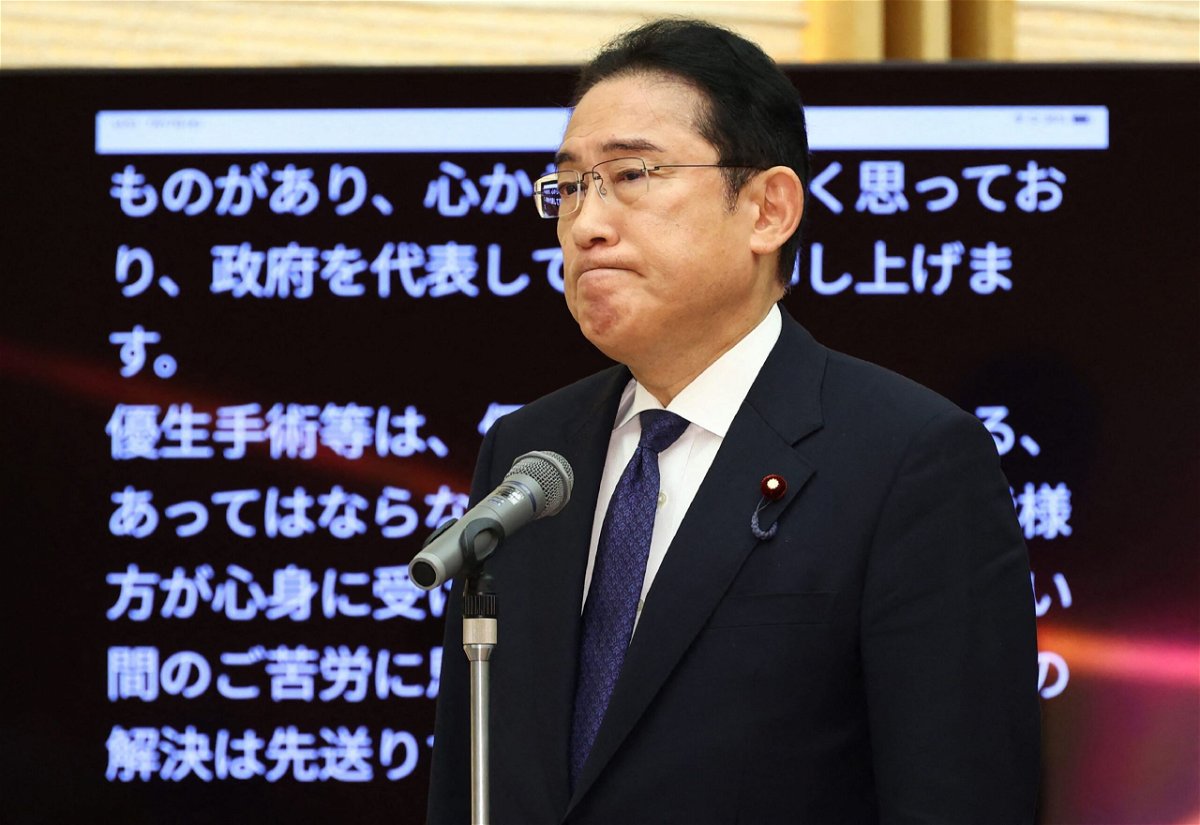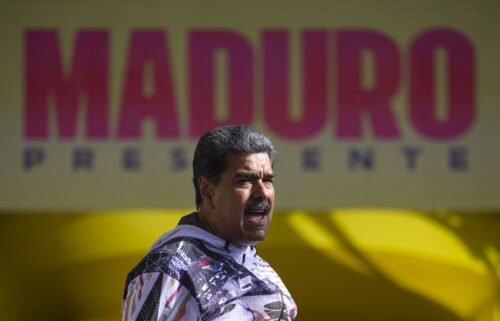Japan’s prime minister apologizes to people forcibly sterilized under former eugenics law

Prime Minister Fumio Kishida apologizes during a meeting with the plaintiffs and their supporters at his official residence in Tokyo on July 17
Tokyo (CNN) — Japan’s Prime Minister Fumio Kishida has formally apologized to a group of plaintiffs who were forcibly sterilized under the country’s decades-long former eugenics law following their lengthy campaign for justice.
The Eugenic Protection Law, in place from 1948 to 1996, allowed authorities to forcibly sterilize people with disabilities, including those with mental disorders, hereditary diseases or physical deformities and leprosy. It also allowed forced abortions if either parent had those conditions.
At least 25,000 people were sterilized under the law, Kishida told a meeting at his official residence of about 130 survivors, many now elderly and in wheelchairs, public broadcaster NHK reported Wednesday.
“I decided to meet with you today in order to personally express my remorse and apology for the tremendous physical and mental suffering that many people have endured based on the former Eugenic Protection Law,” Kishida said.
The law was unconstitutional and had violated individuals’ human rights and dignity, the prime minister said, adding he had ordered authorities to prepare a new compensation plan for survivors, without sharing the details.
Plaintiffs and their supporters have argued that a previous government compensation offer of 3.2 million yen (about $20,000) each was too low. They won a significant victory earlier this month, when Japan’s Supreme Court ordered the government to pay 16.5 million yen (about $105,000) each in damages to plaintiffs of several lawsuits and 2.2 million yen ($14,000) to their spouses.
One plaintiff, Kikuo Kojima, described being taken to the hospital when he was 19, where he said he was “given the nickname ‘Schizophrenic’ and forced into eugenic surgery.”
“I will never forget that,” he said, according to NHK.
Other plaintiffs said they were bedridden for years following their operations, faced a lifetime of discrimination, were unable to work due to the physical and mental toll, and wished their bodies could return to their “original” state, NHK reported.
Eugenics law
Japan experienced a brief baby boom after World War II, alarming authorities as they struggled to deal with severe nationwide food shortages and a war-ravaged economy, according to academics and Japanese medical associations.
The government leapt to implement population control measures, including a national campaign to promote contraception – and the Eugenic Protection Law, which “made abortions and sterilizations available,” and was described as “government policy in the population field” in a 1972 report by the government-run Institute of Population Problems.
The legislation aimed to “prevent the increase of the inferior descendants from the eugenic point of view and to protect the life and health of the mother,” according to a copy of the law – which listed “remarkable abnormal sexual desire” and “remarkable clinical inclination” among the conditions targeted.
Besides an official apology, the plaintiffs have also demanded a compensation law that would benefit all survivors, even those who haven’t filed lawsuits.
They also urged authorities to quickly conclude ongoing related legal cases, stressing that most plaintiffs were reaching the end of their lives, NHK reported.
“I heard the apology directly from the prime minister to the victims, but I think we could have heard it earlier,” said Koji Niisato, an attorney for plaintiffs, according to NHK. “Today, I hope that you will listen to the actual conditions of the victims and their real voices and do your utmost to achieve a full resolution for them.”
Some plaintiffs also said they were not fully satisfied with the government’s apology and the Supreme Court ruling.
“It has been really hard for a long time, and even after hearing the verdict, I cannot put my mind at ease,” one plaintiff said, according to NHK.
The-CNN-Wire
™ & © 2024 Cable News Network, Inc., a Warner Bros. Discovery Company. All rights reserved.


